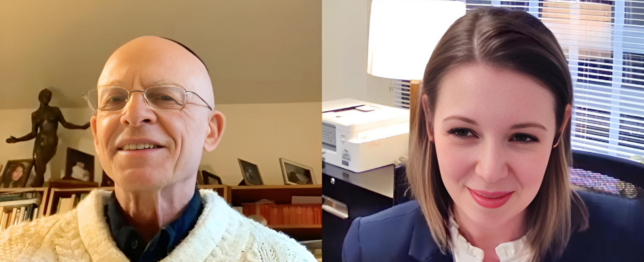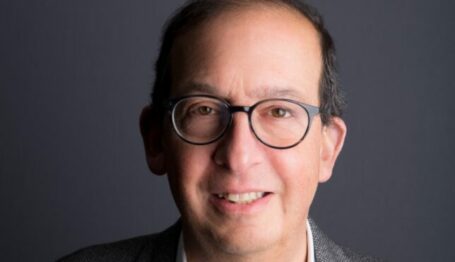Philanthropy
Higher Education’s “Donor Revolt”: A Conversation with ACTA’s Michael Poliakoff and Emily Koons Jae (Part 1 of 2)
The American Council of Trustees and Alumni’s president and vice president talk to Michael E. Hartmann about philanthropic support of higher education and efforts to reform it—before and after October 7.
 Michael Poliakoff and Emily Koons Jae.
Michael Poliakoff and Emily Koons Jae.

The American Council of Trustees and Alumni (ACTA) was founded in 1995 to bring the voices of alumni and then trustees to the important internal and external discourse about what American higher education should be and how it should be run, including the ways in which it should be funded.
In the wake of the horrific October 7 attack on Israel by Hamas, subsequent on-campus activities in defense of or actually outright promoting Hamas, and notably conspicuous silence from higher-ed administrators about the attack and those activities, there has been renewed attention to that funding by donors. This “donor revolt,” as some have aptly described it, has again raised many ACTA-like questions and concerns about such funding. Some high-profile donors have even withdrawn or suspended their support or particular higher-ed institutions.
Michael Poliakoff joined ACTA in 2010 as its vice president of policy and became its president in 2016. He is a former vice president for academic affairs at the University of Colorado and has served in senior positions at the National Endowment for Humanities, the National Council on Teacher Quality, the American Academy for Liberal Education, and the Pennsylvania Department of Education. He teaches at George Mason University and has taught at Georgetown University, George Washington University, Hillsdale College, the University of Illinois–Chicago, and Wellesley College.
Emily Koons Jae is ACTA’s vice president for development and philanthropy. She formerly directed its Fund for Academic Renewal, which offers helpful advice and guidance to existing and would-be higher-ed donors. She has also worked at the Commonwealth Foundation for Public Policy Alternatives in Pennsylvania and the Jack Miller Center.
Poliakoff and Jae were kind enough to join me for a conversation late last month. The almost-11-and-a-half-minute video below is the first part of our discussion; the second will is here. In the first part, they talk about ACTA’s mission and history, including the pace of higher-ed reform pre-October 7.
“One of my longtime colleagues says that she’d like to hang a banner outside our window … saying ‘We told you so.’ But our real job now is to fix what is broken,” Poliakoff tells me. “The warning lights have been flashing for a long time. Not everyone was willing to look at those warning lights, but now they have become so bright that they’re much harder to ignore and that can only be a good thing.
“Some good things were happening,” he says—citing adoption of the Kalven Committee report’s principles at the University of North Carolina-Chapel Hill, as well as the work of ACTA’s Campus Freedom Initiative, which “has won something on every campus that we have touched.”
“[T]he challenges to reform are real. They’re formidable,” according to Jae. But
higher education is too important to our society to abandon. … Unlike Vegas, what happens on college campuses doesn’t stay there. This illiberal ideology that we’ve seen take over workplaces, government, you name it—that started on college campuses. So I would encourage donors to not give up on reform efforts, because I think we can’t simply walk away from higher education.
In the conversation’s second part, Poliakoff and Jae talk more about the need for and nature of higher-ed reform in the wake of the October 7 Hamas attack and its aftermath—including on-campus pro-Hamas activities, their tolerance if not encouragement by administrators, and the “donor revolt” against all of it.
This article originally appeared in the Giving Review on December 7, 2023. The title was modified from the original.


